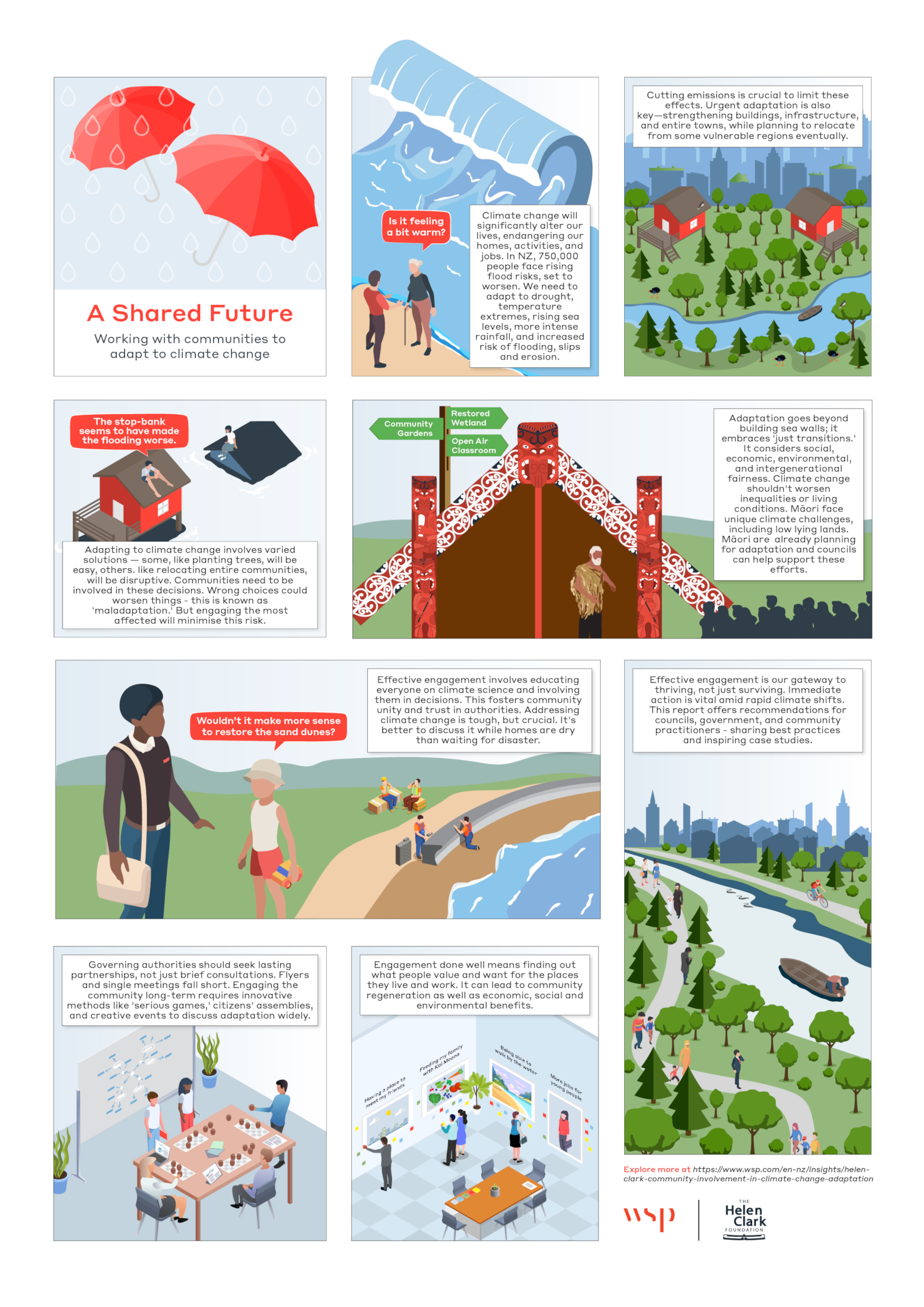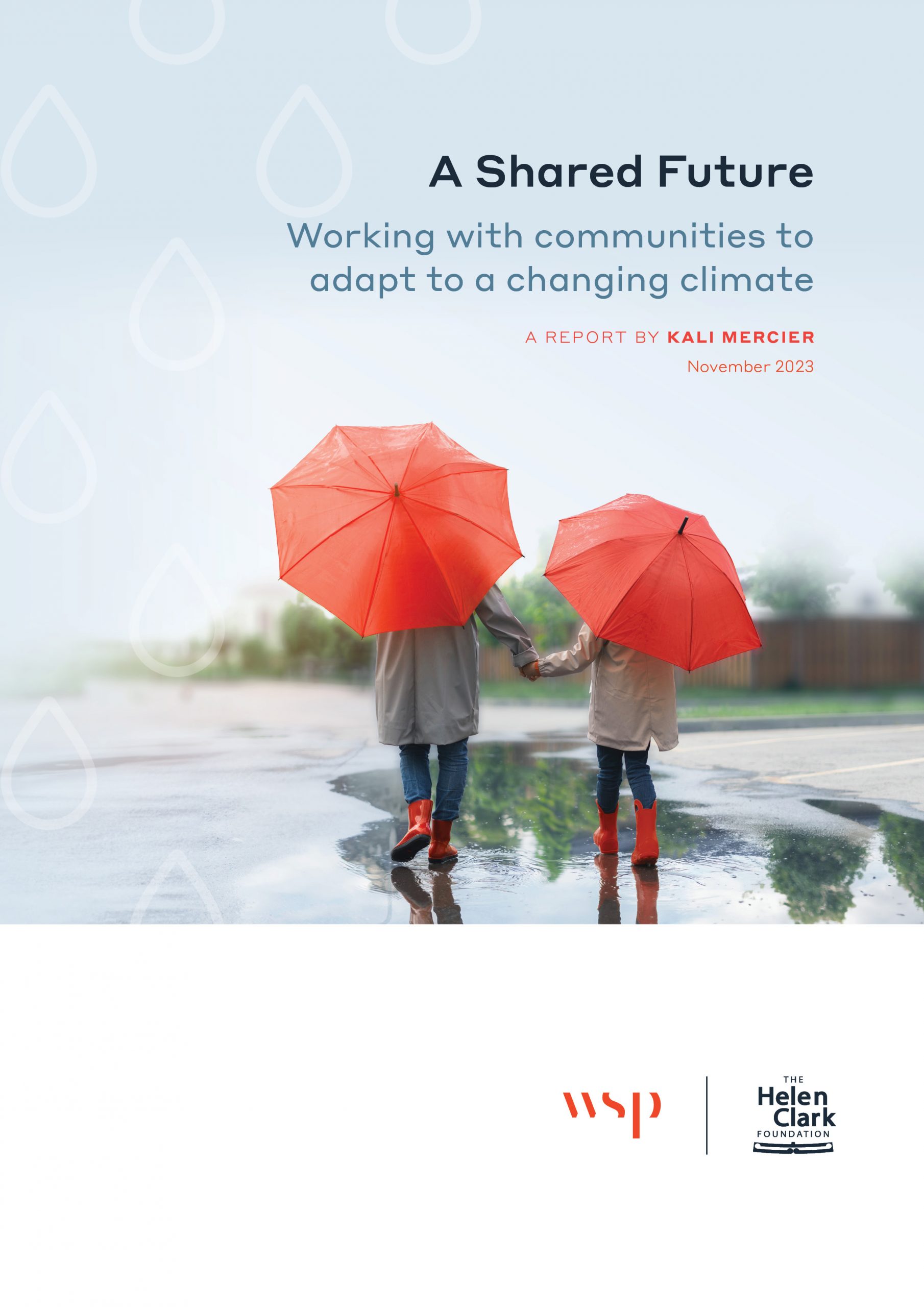A Shared Future is our latest report in partnership with WSP in New Zealand. You can read and download the full report here. The press release for this report is here.
Our new report by WSP Fellow Kali Mercier calls for significant change to the way communities are engaged in climate adaptation planning. With climate change reshaping our lives, culture, and public health in profound ways, this issue has never been more urgent.
(Click on the image below to enlarge)

The report finds that involving communities in adaptation efforts is just as crucial as finding the right engineering solutions. Adapting to a changing climate will be disruptive and intrusive for many. If meaningful community engagement is neglected, it’s likely to create division, weaken the effectiveness of adaptation efforts, and make them less credible and durable.
The report features a range of best-practice principles, tools, and case studies that central and local government authorities and practitioners involved in climate adaptation can use to better engage communities in the process.
Report recommendations for Government and councils include:
• Meaningfully involve communities in long-term planning and implementation, in the spirit of collaboration, partnership, and empowerment.
• Honour the spirit of partnership set out in Te Tiriti o Waitangi in climate adaptation, proactively working with Māori and weaving Māori knowledge into risk assessments and adaptation planning.
• Adopt and foster innovative approaches to strengthen engagement and participation, including deliberative democratic approaches and creative methods to help community members understand the science.
• Support community engagement at the central government level through funding, tools, resources, capacity building, and the passage of relevant legislation.
You can read our previous report with WSP in New Zealand on climate adaptation, Sponge Cities, here.
Read more